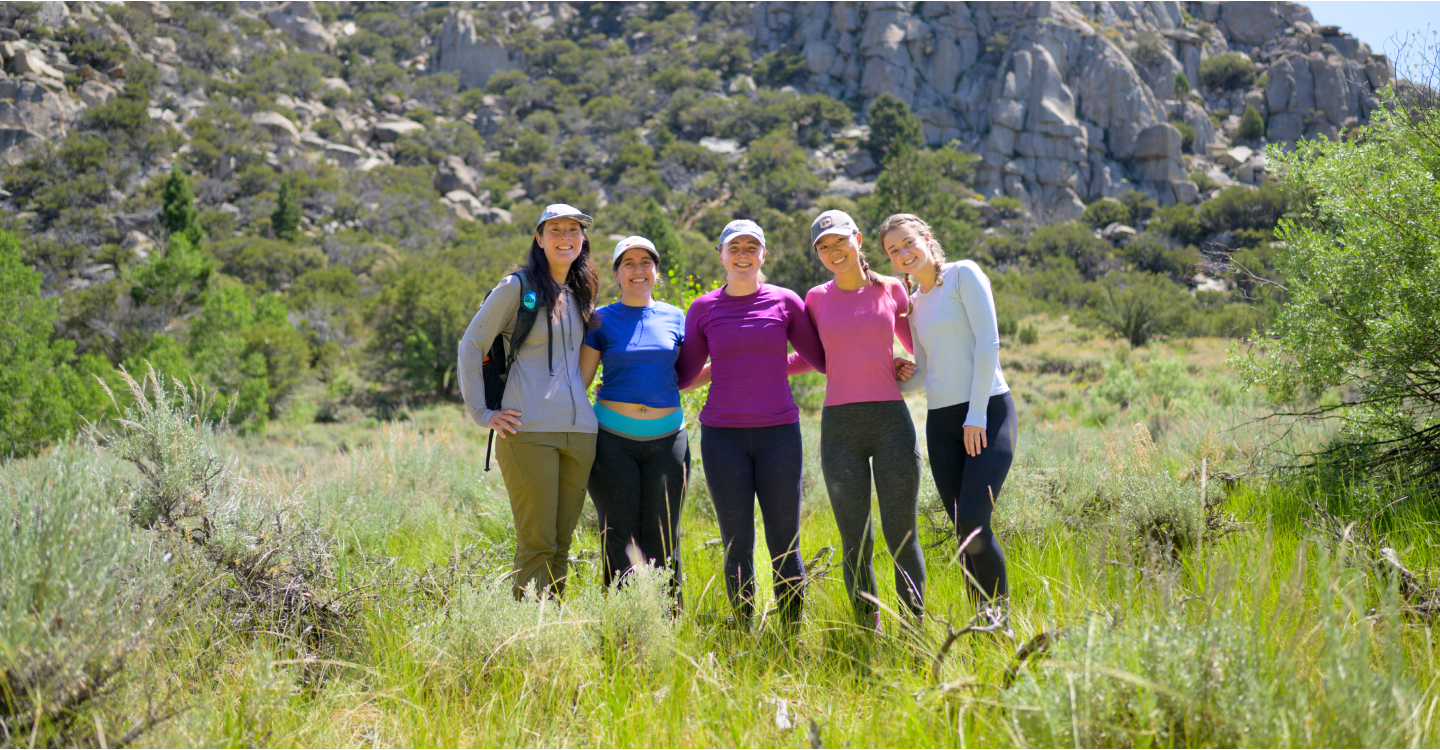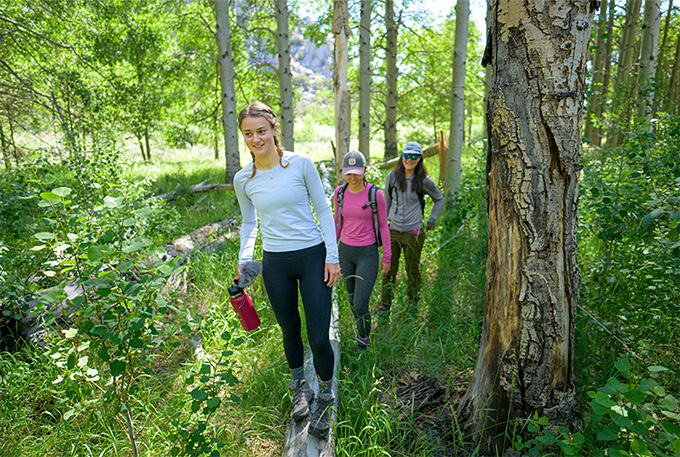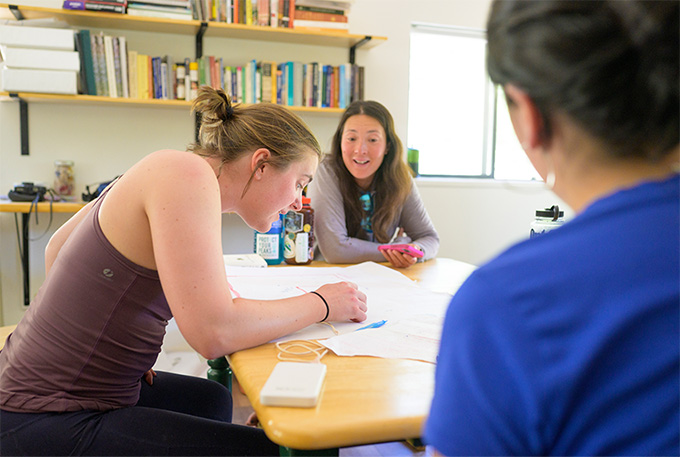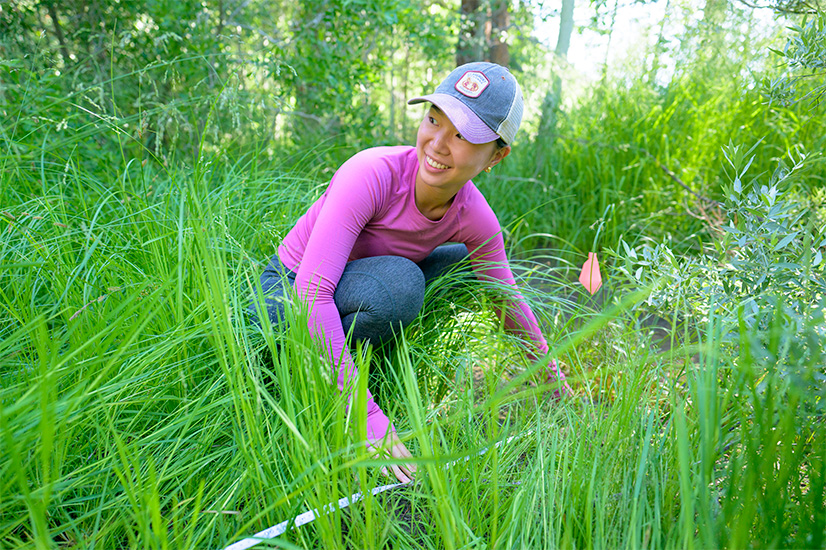Thousands of feet up into the eastern Sierra Nevada, amidst a large grove of aspens near Mono Lake, Alyssa Wong ’26 discovered the value of fieldwork thanks to a prime opportunity to spend one month at the Roberts Environmental Center’s Research Station.
Among the four Roberts Environmental Center (REC) Summer Fellows selected to conduct research at the remote, rugged “outdoor lab” located along Tioga Pass, Wong dug into her project, “Aphids, Aspens, Ants: Investigating the Relationship Between the Presence of Aphid Excretion (Honeydew) and Signs of Insect Damage on Quaking Aspen Leaves.”
“Fieldwork is just as challenging and important as data analysis,” said the CMC Environment, Economics and Politics major, noting how the REC Fellowship program, “really helped me tie all of the parts of my major together, and see how interconnected these interdisciplinary subjects are.”
This experiential learning experience vividly illustrates the importance of getting students out of their classrooms and into the field, according to REC Director Branwen Williams. “Thinking about how we do science—and how we get our data—are concepts that are going to stick with our students, as well as having that shared experience of being in a place that’s beautiful, but also challenging,” she said.
In addition, Williams said “place-based learning,” such as recent REC ventures to a Santa Barbara coastal reserve and a seaweed aquaculture farm, develop “skills that our students will use in the workplace … connecting what they learn in the classroom with tangible applications to gain experiences that will translate to their post-CMC careers.”
As the REC celebrates its 40th anniversary this fall, Williams reflected on how the Center has prepared students “to address and analyze the issues from as wide a perspective as possible, taking science, economics, and policy into consideration, honing their analytical skills through data analysis, enabling the publication of scholarly works, and training them in public speaking to a broad audience.”



